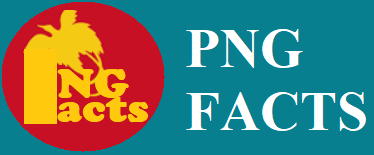Papua New Guinea is an island country north of Australia.
Papua New Guinea (PNG) is rich in gold, oil, gas, copper, silver, timber and is home to abundant fisheries. Its population of less than 7 million is strikingly diverse, organized in small, fragmented social groups and speaking over 800 distinct languages. The economy is highly dualistic, consisting of an enclave based formal sector that focuses mainly on large-scale export of natural resources, and an informal sector dominated by the subsistence and semi-subsistence activities of the majority rural population, although a local non-mineral small and medium enterprise sector is now emerging.
Stronger macroeconomic management in recent years has turned a series of positive external income shocks and large new investments into the longest uninterrupted period of economic growth since the country’s independence in 1975. Despite a significant shock to its export prices, the economy slowed only modestly in 2009, to expand by 5.5 percent, before recovering to around 7 percent growth in 2010 and an expected 9 percent expansion in 2011 (based on information available mid-year).
The turn-around from the economic crises of the late 1990s has been broadly based. While the USD 15 billion PNG-LNG investment has been the most notable, other investments in communications, construction and real estate, for example, have given significant impetus and created spillovers into other sectors. These investments have supported growth in formal employment, creating shortages of skilled labor.
There has been important progress in key areas of structural reform in recent years; in particular, opening markets in telecommunications and air transport has produced major welfare gains for the population. To diversify the economy and increase employment, attention is needed to challenges such as maintaining law and order, improving the business climate, commercializing state-owned enterprises, reducing the regulatory and licensing burden, and equitably accessing resources (including land) for development. Developing infrastructure – electricity, telecommunications, road and other transport – continues to be a critical precondition for accelerated private sector-led growth.
Translating strong macroeconomic performance and extractive industry revenues into a broad improvement in living standards remains the key challenge for PNG. Ensuring the integrity of the public financial management for service provision, improving efficiency of sectoral spending, raising the performance of the civil service, and improving transparency and accountability in budget management will be crucial in converting the forthcoming windfall revenue into palpable improvement in service delivery. Source: World Bank
Papua New Guinea (PNG) is rich in gold, oil, gas, copper, silver, timber and is home to abundant fisheries. Its population of less than 7 million is strikingly diverse, organized in small, fragmented social groups and speaking over 800 distinct languages. The economy is highly dualistic, consisting of an enclave based formal sector that focuses mainly on large-scale export of natural resources, and an informal sector dominated by the subsistence and semi-subsistence activities of the majority rural population, although a local non-mineral small and medium enterprise sector is now emerging.
Stronger macroeconomic management in recent years has turned a series of positive external income shocks and large new investments into the longest uninterrupted period of economic growth since the country’s independence in 1975. Despite a significant shock to its export prices, the economy slowed only modestly in 2009, to expand by 5.5 percent, before recovering to around 7 percent growth in 2010 and an expected 9 percent expansion in 2011 (based on information available mid-year).
The turn-around from the economic crises of the late 1990s has been broadly based. While the USD 15 billion PNG-LNG investment has been the most notable, other investments in communications, construction and real estate, for example, have given significant impetus and created spillovers into other sectors. These investments have supported growth in formal employment, creating shortages of skilled labor.
There has been important progress in key areas of structural reform in recent years; in particular, opening markets in telecommunications and air transport has produced major welfare gains for the population. To diversify the economy and increase employment, attention is needed to challenges such as maintaining law and order, improving the business climate, commercializing state-owned enterprises, reducing the regulatory and licensing burden, and equitably accessing resources (including land) for development. Developing infrastructure – electricity, telecommunications, road and other transport – continues to be a critical precondition for accelerated private sector-led growth.
Translating strong macroeconomic performance and extractive industry revenues into a broad improvement in living standards remains the key challenge for PNG. Ensuring the integrity of the public financial management for service provision, improving efficiency of sectoral spending, raising the performance of the civil service, and improving transparency and accountability in budget management will be crucial in converting the forthcoming windfall revenue into palpable improvement in service delivery. Source: World Bank
